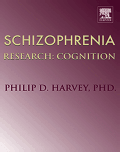
Schizophrenia Research-Cognition
Scope & Guideline
Empowering knowledge through open access research.
Introduction
Aims and Scopes
- Cognitive Assessment and Remediation:
The journal publishes studies on various methods for assessing cognitive function in schizophrenia, including traditional neuropsychological tests and innovative approaches like virtual reality and computerized assessments. - Neurobiological Underpinnings of Cognition:
Research exploring the neurobiological mechanisms underlying cognitive impairments in schizophrenia is a core focus, including studies on neuroinflammation, genetic factors, and neuroimaging. - Social Cognition and Functioning:
The journal addresses the relationship between social cognition (e.g., theory of mind, emotion recognition) and functional outcomes in individuals with schizophrenia, highlighting the importance of social skills in recovery. - Impact of Comorbidities on Cognition:
Studies examining how factors such as obesity, substance use, and sleep disorders affect cognitive functioning in patients with schizophrenia are frequently featured. - Innovative Interventions:
The journal emphasizes research on novel interventions for cognitive remediation, including technology-based approaches and their effectiveness in improving cognitive and functional outcomes.
Trending and Emerging
- Use of Technology in Cognitive Assessment:
Emerging themes include the increasing use of smartphone applications and virtual reality for cognitive assessments, reflecting a trend towards integrating technology into clinical practice. - Neuroinflammation and Cognitive Functioning:
Recent studies have focused on the role of neuroinflammation and its impact on cognition, indicating a growing interest in understanding the biological underpinnings of cognitive deficits in schizophrenia. - Cognitive Remediation Strategies:
There is a notable increase in research addressing cognitive remediation techniques, particularly those that are tailored and involve patient engagement, highlighting a shift towards practical applications that aim to improve daily functioning. - Social Cognition and Its Impact on Treatment Outcomes:
Research exploring social cognition and its correlation with treatment outcomes is gaining prominence, emphasizing the need for interventions that enhance social skills as part of comprehensive treatment plans. - Interdisciplinary Approaches:
There is a trend towards interdisciplinary research that combines psychology, neurobiology, and technology, which is fostering a more holistic understanding of cognitive impairments in schizophrenia.
Declining or Waning
- Traditional Neuropsychological Assessments:
There is a noticeable reduction in studies focusing solely on traditional neuropsychological assessments, as newer methodologies and technologies gain traction in cognitive evaluation. - Basic Cognitive Processes Without Clinical Relevance:
Research that examines basic cognitive processes in isolation, without linking them to clinical outcomes or practical applications, seems to be less prevalent, indicating a shift towards more clinically relevant studies. - Longitudinal Studies of Cognitive Decline:
While longitudinal studies remain important, there appears to be a decrease in publications specifically focused on chronic cognitive decline over time, as the journal may be shifting towards more immediate interventions and outcomes.
Similar Journals

Cognitive Neurodynamics
Unraveling the Intricacies of Mind and Brain.Cognitive Neurodynamics is a leading journal in the field of cognitive neuroscience, published by Springer in the Netherlands. With an ISSN of 1871-4080 and an E-ISSN of 1871-4099, this journal has established itself as a prominent platform for innovative research from its inception in 2007, continuing to enrich the academic landscape through 2024. Recognized for its significant contributions, Cognitive Neurodynamics holds a Q2 quartile ranking in cognitive neuroscience and impressively ranks #27 out of 115 in the Scopus database, placing it in the 76th percentile among its peers. While the journal is not open access, it offers a wealth of studies focusing on the intricate dynamics of cognitive processes and neurobiological mechanisms, making it essential reading for researchers, professionals, and students alike. Its objective is to bridge the gap between theoretical insights and practical applications, fostering a deeper understanding of cognition through multidisciplinary approaches. Explore the latest advancements in cognitive dynamics and contribute to the evolving dialogue within this fascinating field.

JOURNAL OF COGNITIVE NEUROSCIENCE
Charting the landscape of cognitive neuroscience.Welcome to the JOURNAL OF COGNITIVE NEUROSCIENCE, a premier publication in the field of cognitive neuroscience, published by the esteemed MIT PRESS. Since its inception in 1989, this journal has been at the forefront of advancing our understanding of the neural mechanisms underlying cognitive processes, boasting an impressive convergence period through 2024. With its Q1 ranking in the 2023 cognitive neuroscience category, it stands out among 115 peers, indicating its critical role in shaping contemporary research. The journal offers a comprehensive array of research articles, reviews, and methodologies aimed at researchers, professionals, and students alike, facilitating the exploration of complex cognitive functions. While not an open-access journal, it provides essential insights and significant contributions to the neuroscience community, making it an invaluable resource for anyone keen on delving into the intricacies of the human brain.

Schizophrenia
Bridging Research and Practice in Mental HealthSchizophrenia, published by NATURE PORTFOLIO, is a pioneering open-access journal established in 2022, dedicated to advancing the scientific understanding of schizophrenia and its associated disorders. With its commitment to disseminating high-quality research without barriers, this journal aims to provide a platform for innovative studies, reviews, and meta-analyses that enhance clinical practices and therapeutic approaches. The journal is strategically located in Berlin, Germany, a hub for mental health research and innovation. By facilitating open exchange among researchers, professionals, and students, Schizophrenia aspires to be at the forefront of the global discourse on psychiatric disorders, driving forward critical advancements that can translate into improved patient care and outcomes. With a focus on promoting the latest findings in epidemiology, neurobiology, pharmacology, and psychosocial interventions, this journal is poised to become an essential resource for scholars and practitioners alike, eager to make significant contributions to the field.
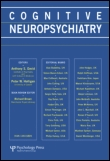
Cognitive Neuropsychiatry
Shaping Perspectives: Pioneering Research in Cognitive NeuropsychiatryCognitive Neuropsychiatry is a distinguished academic journal published by Routledge Journals, Taylor & Francis Ltd, dedicated to the intersection of cognitive neuroscience and psychiatry. With a strong commitment to advancing knowledge in these rapidly evolving fields, this journal provides a platform for high-quality, peer-reviewed research that explores cognitive processes underlying psychiatric disorders. Aiming to bridge gaps between neuroscience and clinical practice, it serves as an essential resource for researchers, professionals, and students alike. As evidenced by its performance metrics, the journal ranks in the Q2 quartile for Psychiatry and Mental Health, and Q3 for Cognitive Neuroscience, showcasing its relevance and growing impact, particularly among a competitive audience. While it does not currently offer open access options, Cognitive Neuropsychiatry remains a vital outlet for disseminating impactful findings, offering insights that shape contemporary psychiatric understanding and interventions.
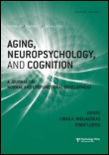
AGING NEUROPSYCHOLOGY AND COGNITION
Exploring the intersection of mind and age.AGING NEUROPSYCHOLOGY AND COGNITION, published by ROUTLEDGE JOURNALS, TAYLOR & FRANCIS LTD, is a leading scholarly journal that spans the interdisciplinary fields of psychology, neuropsychology, and gerontology. With a strong focus on understanding aging processes and cognitive function, this journal serves as a critical platform for researchers, clinicians, and students dedicated to advancing knowledge in the realm of cognitive aging. The journal, established in 1994, presents high-quality research articles, comprehensive reviews, and innovative studies that contribute to the discourse surrounding mental health and aging. Notably, it has been recognized with a 2023 Q2 ranking in Experimental and Cognitive Psychology and Neuropsychology categories, reflecting its significant impact within these domains. The journal includes open access options, making it widely accessible to a global audience. Researchers interested in the latest findings and theoretical developments in aging neuropsychology will find this journal an invaluable resource, further enhanced by its robust Scopus rankings and commitment to academic excellence through 2024 and beyond.

Behavioral and Brain Functions
Advancing the Science of Mind and BehaviorBehavioral and Brain Functions is a leading Open Access journal published by BMC, dedicated to advancing the field of behavioral neuroscience, cognitive neuroscience, and biological psychiatry since its inception in 2005. This esteemed journal, based in the United Kingdom, has established itself as a vital resource for researchers and professionals, boasting a remarkable influence demonstrated by its Q1 and Q2 rankings across multiple relevant categories. With its commitment to providing unrestricted access to high-quality research, the journal facilitates the dissemination of significant findings in understanding the complex interactions between behavior and brain function. The journal ranks impressively within the Scopus database, positioning itself among the top-tier publications in its categories, making it an essential platform for academic discourse and innovation. As it converges through 2024, Behavioral and Brain Functions continues to play a crucial role in shaping the forefront of neuroscientific inquiry, inviting contributions that challenge our understanding and promote further exploration in these dynamic fields.
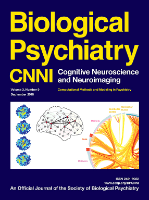
Biological Psychiatry-Cognitive Neuroscience and Neuroimaging
Transforming Psychiatric Research with Innovative TechniquesBiological Psychiatry-Cognitive Neuroscience and Neuroimaging is a leading interdisciplinary journal published by Elsevier, focusing on the convergence of biological psychiatry, cognitive neuroscience, and advanced neuroimaging techniques. With its prestigious Q1 rankings across essential categories such as Biological Psychiatry, Cognitive Neuroscience, and Neurology (clinical), this journal is at the forefront of research that examines the complexities of mental health through innovative methodologies. Covering a broad spectrum of topics from neurobiological mechanisms to clinical applications, it aims to provide a platform for scholars and practitioners to exchange insights on mental disorders and their neurobiological underpinnings. The impact factor and Scopus rankings further underscore its importance, with rankings highlighting its position in the top percentiles of related disciplines. By fostering an open exchange of ideas and promoting cutting-edge research, this journal is an essential resource for researchers, professionals, and students dedicated to advancements in the understanding and treatment of psychiatric and neurological conditions.
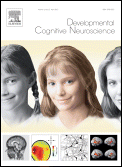
Developmental Cognitive Neuroscience
Connecting research and practice in cognitive development.Developmental Cognitive Neuroscience is a leading interdisciplinary journal published by ELSEVIER SCI LTD, dedicated to advancing the field of cognitive neuroscience with a specific focus on the developmental aspects of brain function and behavior. Since its inception in 2011, this Open Access journal has continued to thrive, gaining significant recognition with a remarkable impact factor that places it in the Q1 category of cognitive neuroscience, ranking 22nd out of 115 in Scopus. This enhances its visibility and accessibility to a global audience, including researchers, clinicians, and students keen on exploring the intricate relationship between cognitive development and neurological processes. The journal embraces a wide array of topics, from the impact of early life experiences on cognitive outcomes to neurodevelopmental disorders, fostering an enriching platform for disseminating high-quality research and innovative findings. As it progresses towards 2024, Developmental Cognitive Neuroscience remains pivotal in shaping future research and understanding in the field.

NEUROBIOLOGY OF AGING
Decoding Neurobiological Mechanisms of AgingNEUROBIOLOGY OF AGING, published by Elsevier Science Inc, is a premier journal dedicated to advancing our understanding of the complex interactions between the aging process and neurobiological mechanisms. With an ISSN of 0197-4580 and E-ISSN 1558-1497, the journal has established itself as a critical resource in the fields of Aging, Developmental Biology, Geriatrics and Gerontology, Clinical Neurology, and Neuroscience. Boasting a Q1 ranking in multiple categories, the journal is positioned within the top echelons of scholarly publication, underscoring its significant impact with an impressive Scopus ranking in various subfields. Committed to disseminating high-quality, peer-reviewed research, NEUROBIOLOGY OF AGING welcomes original articles, reviews, and research notes aiming to uncover the underlying processes of aging on the nervous system, fostering collaboration among researchers, professionals, and students alike. Although primarily subscription-based, the journal continues to play a vital role in shaping the discourse on aging and neurobiology, making it an essential publication for those engaged in this dynamic field.

Journal of Cultural Cognitive Science
Shaping the Future of Cultural Cognitive ResearchThe Journal of Cultural Cognitive Science, published by SpringerNature, is an esteemed forum for researchers and scholars dedicated to exploring the intersection of culture, cognition, and language. With its ISSN 2520-100X and E-ISSN 2520-1018, this journal has made significant strides since its inception in 2017, covering a wide array of topics pertinent to Experimental and Cognitive Psychology and Linguistics and Language. Notably, it has achieved remarkable recognition, ranking in the Q3 category for Experimental and Cognitive Psychology and Q1 for Linguistics and Language in 2023. Its Scopus ranks further illustrate its impact, with the journal positioned at the 89th percentile in Social Sciences - Linguistics and Language and 47th percentile in Psychology. Despite its ongoing journey, it continues to foster open dialogue and innovation among professionals, researchers, and students, providing valuable insights and advancing knowledge in the field.